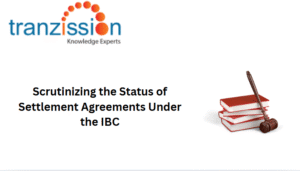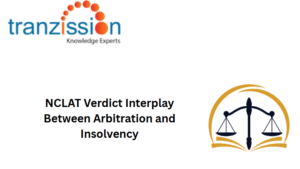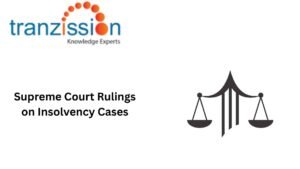
Can the RERA tribunal direct NCLT/IBBI?

Table of Contents
The Real Estate (Regulation and Development) Act, 2016 (RERA) focuses on protecting homebuyers’ rights, while the National Company Law Tribunal (NCLT) and Insolvency and Bankruptcy Board of India (IBBI) deal with corporate insolvency and bankruptcy. There can be overlaps in real estate cases when promoters or developers default. This article delves into the relation of RERA tribunal direct NCLT, and the IBBI.
Understanding the Jurisdiction of RERA, NCLT, and IBBI
The RERA:
The RERA was enacted to protect homebuyers’ rights and ensure the timely completion of real estate projects, and regulate developers and builders for compliance. The RERA Tribunals adjudicate complaints against builders, order refunds and compensation to homebuyers, and impose penalties on defaulting developers.
The National Company Law Tribunal:
The NCLT is established under the Companies Act, 2013 and governed by the IBC. As the Adjudicating Authority in insolvency cases, the NCLT handles corporate insolvency resolution processes (CIRP) and liquidation cases. Their decisions affect homebuyers, creditors, and stakeholders in real estate insolvency cases.
Read more :Role of ESG in Corporate Governance
The Insolvency and Bankruptcy Board of India:
The IBBI regulates insolvency professionals, insolvency agencies, and information utilities. It essentially monitors compliance with IBC provisions and has supervisory control over CIRP and liquidation.
Can RERA tribunal direct NCLT or IBBI: Legal Position and Conflicts
The Insolvency and Bankruptcy Code (Second Amendment) Act, 2018 recognised that homebuyers are financial creditors. This was demonstrated by the Supreme Court ruling in Pioneer Urban Land & Infrastructure Ltd. v. Union of India, in which conflicts arose when real estate developers faced insolvency proceedings under IBC, while homebuyers usually seek relief under RERA. In this case, the main issue was whether the RERA has the authority to direct NCLT or IBBI in insolvency cases. While RERA can handle real estate-related disputes, it cannot direct the NCLT or the IBBI for insolvency-related matters. However, RERA can provide comments to the NCLT when a real estate project is being revived under the IBC, and homebuyers can file claims under RERA and the IBC.
Key Differences Between RERA and NCLT Jurisdiction
| RERA | NCLT | |
| Governing Law | Real Estate (Regulation and Development) Act, 2016 | Insolvency and Bankruptcy Code, 2016 and the Companies Act, 2013 |
| Purpose | To protect the homebuyers and promote transparency and efficiency in the real estate sector | To provide a platform for resolving issues of companies and predicting the interests of creditors. |
| Jurisdiction | Limited to real estate projects and disputes arising from them. | Broad jurisdiction over matters related to companies, icnlduing insolvency, liquidation, and corporate restructuring. |
| Effect on Homebuyers | Primary avenue for resolving real estate issues | Are financial creditors under the 2018 Amendment Act |
Judicial Interpretations on RERA Tribunal’s Authority Over NCLT & IBBI
The Supreme Court in the Pioneer Urban Land & Infrastructure Ltd. v. Union of India held that the IBC has an overriding effect over RERA in cases of insolvency, and RERA orders cannot override NCLT proceedings once CIRP begins. Further, in M/s. Imperia Structures Ltd. v. Anil Patni, the court held that while the RERA and the IBC operate in parallel, homebuyers can file claims under both laws. In several real estate insolvency cases, NCLT refused to consider RERA orders directing refunds to homebuyers. In Shri Rahul Gyanchandani and Ors. Vs. Parsvanath Landmark Developers, the NCLAT held that homebuyers, whether they have an order or decree from RERA, belong to the same category of allottees and are required to comply with the second proviso to section 7 (1) of the IBC.
Challenges in RERA and NCLT Overlapping Powers
Confusion for Homebuyers:
Many homebuyers file claims in both RERA and NCLT, leading to contradictory orders, and refund orders under RERA become unenforceable if a developer is undergoing CIRP.
Regulatory Overlap Between RERA and IBC:
Real estate developers argue that RERA orders should not interfere with IBC proceedings. While the IBBI regulates insolvency professionals, RERA tries to regulate real estate insolvency cases separately, therefore increasing jurisdictional conflicts between the two legislations.
Delays in Insolvency Resolution:
Cases under the NCLT are often delayed due to parallel RERA proceedings. The resolution process under the IBC is often delayed as homebuyers’ expectations of refunds clash with the creditors’ recovery process.
Recommendations for Resolving RERA vs. NCLT Conflicts
To resolve the overlapping jurisdiction between the RERA and NCLT, it is recommended:
The government should clarify the scope of RERA tribunal direct NCLT and. IBC to prevent legal conflicts. This could include measures for the IBBI and RERA authorities to coordinate their regulatory decisions.
The IBBI needs to introduce fast-track settlement mechanisms for homebuyers within CIRP and create dedicated insolvency resolution processes for real estate cases.
RERA tribunals should refer insolvency cases directly to NCLT instead of issuing conflicting orders, and homebuyer claims should be integrated within CIRP instead of separate RERA tribunal direct NCLT proceedings, to standardise coordination between tribunals.
The Way Forward for RERA, NCLT, and IBC Coordination
Harmonizing RERA tribunal direct NCLT and IBC regulations can create a more efficient and predictable legal framework for real estate dispute resolution, protecting both homebuyers and developers. A unified legal framework is essential for attracting investors and fostering the overall stability and growth of the real estate sector. The IBBI can introduce programs on better awareness among homebuyers and insolvency professionals on the correct legal forum to approach. Legal amendments need to be introduced for faster NCLT resolutions for real estate insolvency cases, thereby reducing homebuyer financial distress.
Conclusion
Both RERA tribunal direct NCLT and IBC address issues within the real estate sector, but their scopes and mechanisms can overlap, potentially leading to conflicts and inefficiencies. RERA tribunals have limited authority over the NCLT and the IBBI in cases involving real estate developers facing insolvency, as RERA primarily focuses on consumer protection and project completion, while the NCLT or the IBBI deals with financial recovery and resolution of corporate insolvency. If a real estate developer is facing insolvency, the NCLT or IBBI will handle the insolvency process, but the RERA tribunal direct NCLT can still address issues related to the project’s completion and consumer rights.





